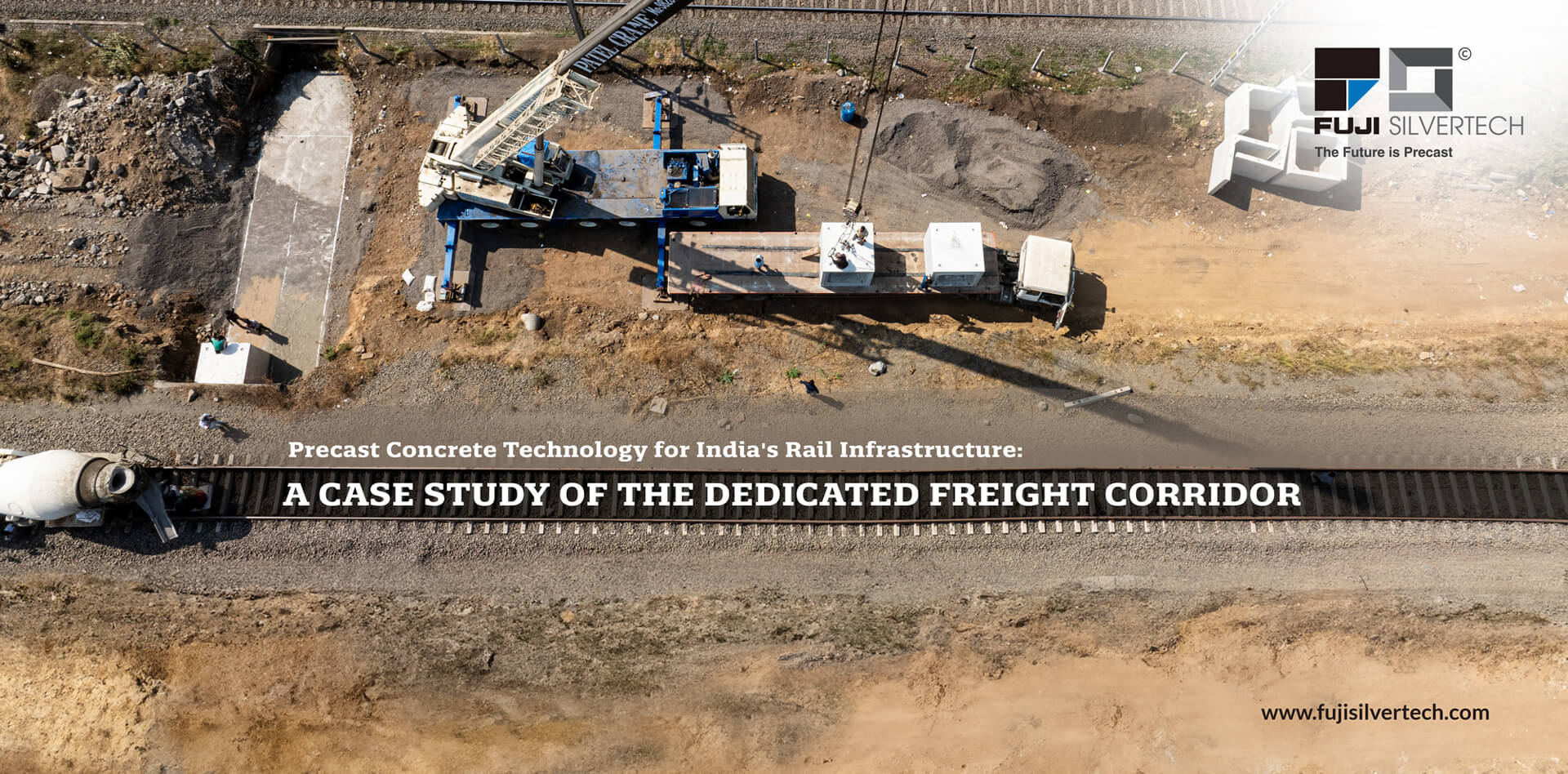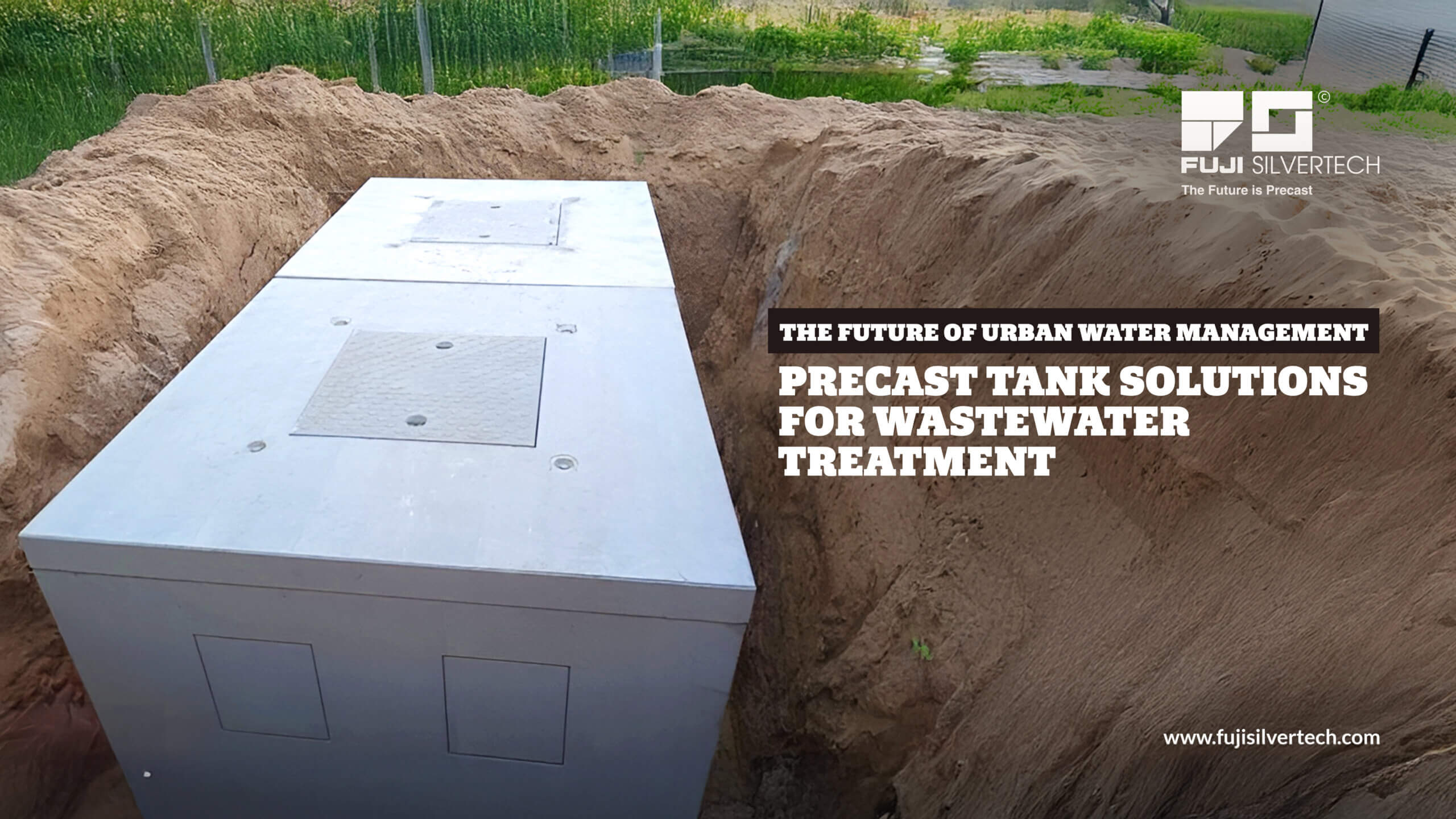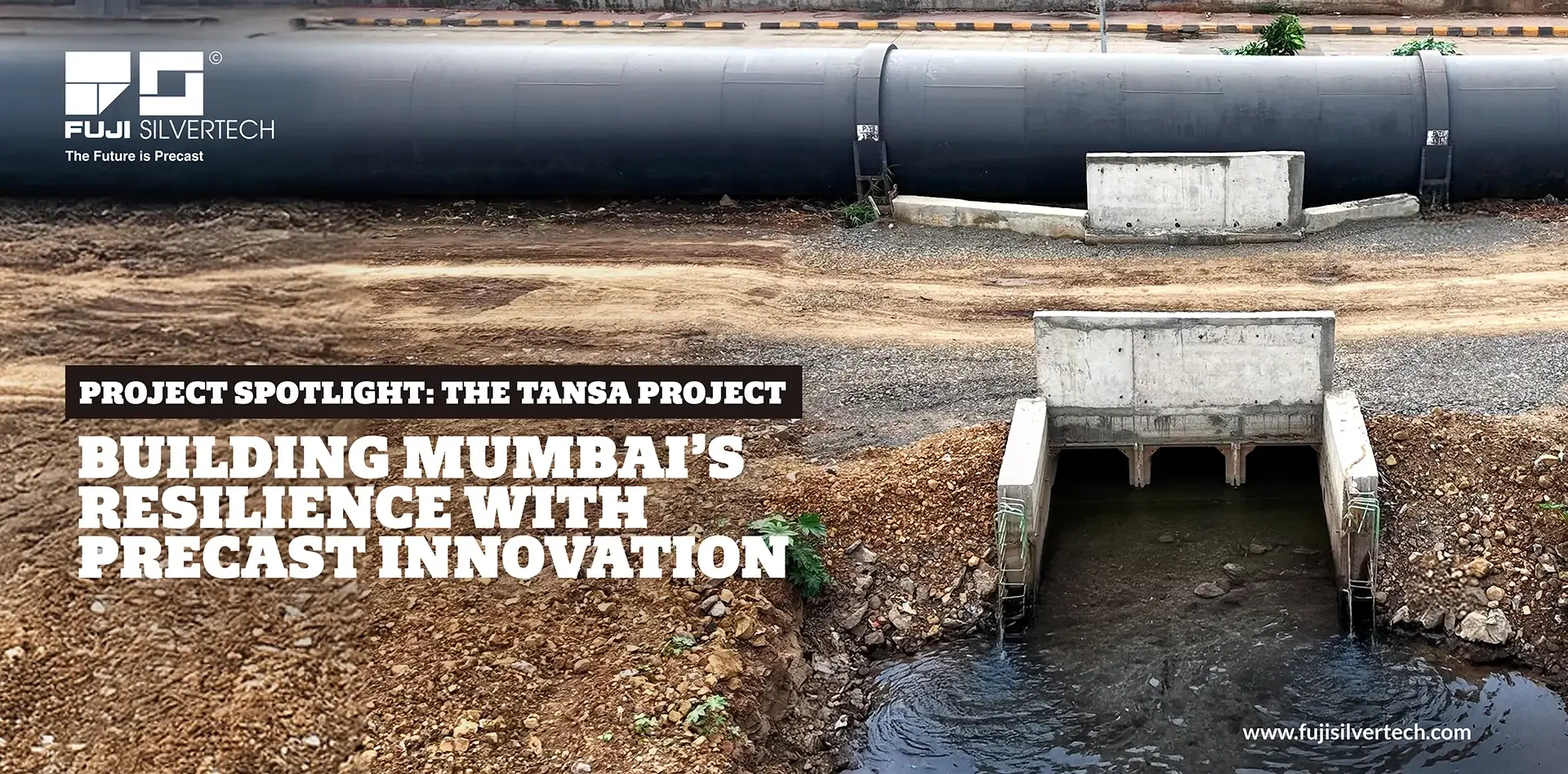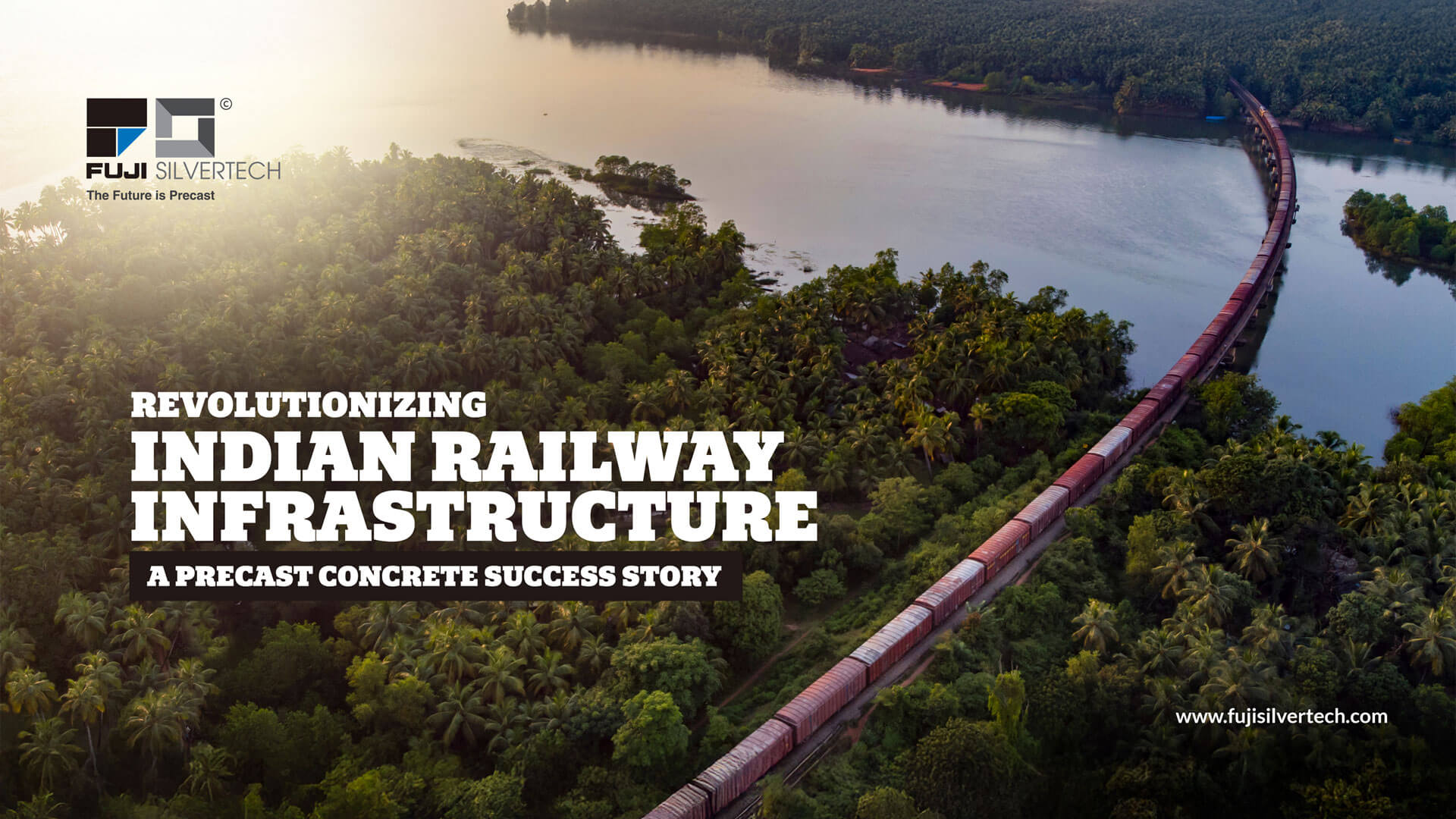A Case Study of the Dedicated Freight Corridor
This article highlights Fuji Silvertech’s success in applying precast concrete technology for the Dedicated Freight Corridor (DFC), a significant railway project in India. The extensive use of precast concrete segments in drainage, cable ducting, bridges and earth retention infrastructure accelerated construction timelines and facilitated work in challenging site conditions. This case study showcases precast technology as an essential part of the modern, integrated, sustainable rail infrastructure.
The Dedicated Freight Corridor
In the 2000s, it became evident that the Indian Railways’ Golden Quadrilateral, linking Delhi, Mumbai, Chennai and Howrah, was highly saturated. This route comprised only 16% of the network but carried over 50% of the passenger and freight traffic of the entire Indian Railway. To address this congestion and boost infrastructure, the Dedicated Freight Corridors along the Eastern and Western arms of the Golden Quadrilateral were conceived. The project gained momentum with support from the Japanese government, announced in the Railway Budget for 2005-06.
Fuji Silvertech’s Precast Solutions for DFC
The DFC project, covering over 3000 km and passing through 9 states, required extensive drainage and ducting alongside the tracks. Fuji Silvertech provided heavy-duty drains, cable ducts, and precast box culverts for minor bridges, ensuring high strength and resistance to aggressive environmental conditions. Their precast solutions offered modular, easy-to-install, cost-effective components, significantly reducing maintenance and repair requirements.
Customised Design
The DFC required customised precast solutions to accommodate higher moving dimensions, increased axle loads and freight speeds. Fuji Silvertech designed precast components tailored to these specifications, ensuring compliance with Indian Railway Standards (IRS) and addressing site-specific conditions. Their innovation included the development of tall, segmental retaining walls up to 9 meters high, which solved significant construction challenges near the tracks..
High-Precision Manufacturing
Utilising Japanese technology and expertise, Fuji Silvertech manufactured high-performance, self-compacting concrete components with superior Fe 550 D reinforcement steel. The factory-based production process included precise mould alignment, accurate reinforcement cages and steam curing placement, ensuring long service life and minimal maintenance. The manufacturing facility, accredited with ISO standards and certifications for operational excellence, ensured quality and environmental safety.
Safe and Timely Dispatch
Managing dispatches across various project packages was a logistical challenge. Fuji Silvertech ensured the safe and timely delivery of over-dimensional and heavy-load cargo through rigorous planning and evaluation of transporters. Their commitment to safety and environmental standards facilitated efficient project progress.
The Result: Fast & Efficient Construction
Precast solutions accelerated construction by up to five times compared to traditional methods. This significant time-saving was crucial for a project of DFC’s scale. Precast construction also reduced space requirements, minimised manpower and ensured safer operations at challenging sites, leading to better quality and weather-resistant infrastructure.
The DFC and Fuji Silvertech: For Sustainable Infrastructure
The DFC is expected to decongest road networks and shift freight transport to more efficient railways, significantly reducing greenhouse gas emissions. Fuji Silvertech’s precast technology minimises pollution, reduces resource wastage and ensures sustainability. Their high-performance concrete products offer slender, functional structures that conserve national resources and reduce the carbon footprint.
Fuji Silvertech is establishing itself as a leader in providing sustainable infrastructure and reduced life cycle costs. The DFC project, in collaboration with Fuji Silvertech, stands as a testament to fast, modern, integrated, and sustainable rail infrastructure, paving the way for India’s future.











 Roads & Bridges
Roads & Bridges